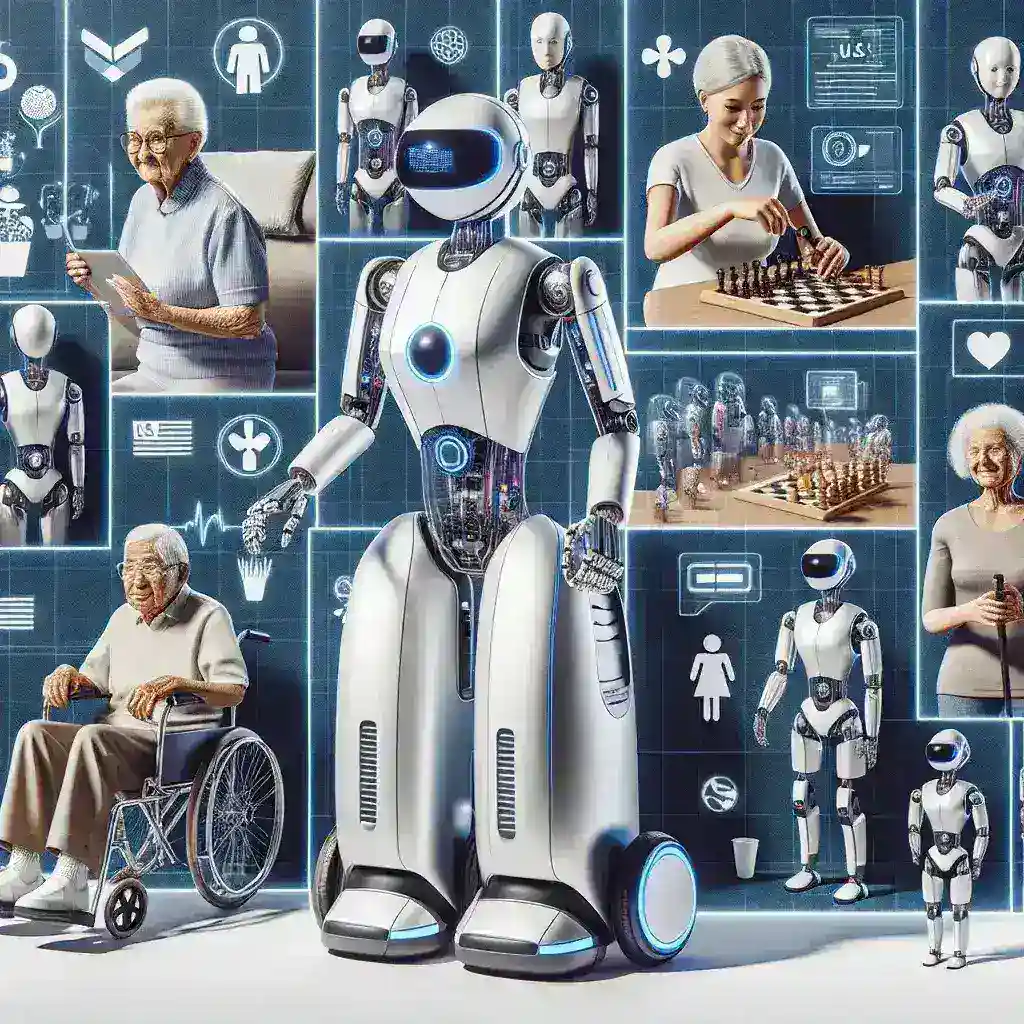
Introduction
The landscape of elder care is undergoing a profound transformation, thanks to the innovative efforts of Boston-based robotics startups. As the U.S. population ages, the demand for effective and compassionate elder care solutions has never been greater. This article delves into the rise of AI-powered elder care robots being developed by these startups, exploring their benefits, challenges, and the potential future they hold for caregivers and seniors alike.
The Aging Population in the U.S.
According to the U.S. Census Bureau, the number of Americans aged 65 and older is projected to reach 94.7 million by 2060, making up nearly 23% of the total population. This demographic shift presents significant challenges for traditional elder care services, including staffing shortages and increasing healthcare costs. In response, robotics startups in Boston are stepping up to fill the gap, leveraging advanced technologies to create solutions that enhance the quality of life for seniors.
The Rise of Robotics Startups in Boston
Boston has long been a hub for technology and innovation, with a rich ecosystem of universities, research institutions, and venture capital. This environment has fostered the growth of robotics startups focused on various applications, including healthcare. Notable companies such as Robotics for Good and Carebotics are leading the way in developing AI-powered elder care robots that assist with daily activities, monitor health, and provide companionship to seniors.
Key Features of AI-Powered Elder Care Robots
- Health Monitoring: Equipped with sensors and AI algorithms, these robots can monitor vital signs, detect falls, and alert caregivers to potential health issues.
- Assistance with Daily Activities: From medication reminders to help with mobility, AI-powered robots can assist seniors in maintaining their independence.
- Companionship: Loneliness is a significant concern for many elderly individuals. These robots can engage in conversations, play games, and provide emotional support.
- Remote Monitoring: Caregivers can stay connected with their loved ones through real-time data and video feeds, ensuring peace of mind.
Success Stories from Boston Startups
Several Boston-based startups have already begun implementing their AI-powered elder care robots in homes across the U.S. For instance, HealthMate Robotics has developed a robot named Buddy, designed to assist seniors with daily tasks while also providing companionship. Families using Buddy have reported significant improvements in their loved ones’ well-being and autonomy.
Another startup, SeniorTech Innovations, introduced a robot called CareCompanion, which not only helps with routine activities but also integrates with smart home systems to create a holistic living environment for seniors. Feedback from users highlights the importance of being able to communicate easily with their CareCompanion, which has significantly enhanced their quality of life.
The Benefits of AI-Powered Elder Care Robots
The advantages of integrating AI-powered robots into elder care are manifold:
- Increased Independence: By assisting with daily tasks, these robots help seniors maintain a level of independence that is crucial for their self-esteem and mental health.
- Reduced Caregiver Burden: Family caregivers often face physical and emotional exhaustion. Robots can alleviate some of this burden, allowing caregivers to focus on quality time rather than routine tasks.
- Enhanced Safety: The ability to monitor health and detect emergencies provides an additional safety net for seniors living alone, reducing the risk of severe health issues going unnoticed.
- Cost Savings: Although the initial investment in technology may be high, the long-term cost savings from reduced hospital visits and in-home care can be substantial.
The Challenges Ahead
Despite the promising potential of AI-powered elder care robots, there are several challenges that must be addressed:
- Technological Acceptance: Some seniors may be hesitant to adopt new technology. Education and training will be essential to ensure that they feel comfortable using these devices.
- Data Privacy Concerns: The integration of sensors and cameras raises questions about privacy. Startups must prioritize data security and transparency to build trust with users.
- Regulatory Hurdles: Navigating the complex landscape of healthcare regulations can pose challenges for startups as they seek to bring their products to market.
Looking to the Future
The future of elder care is undoubtedly intertwined with advancements in robotics and artificial intelligence. As Boston startups continue to innovate, we can expect to see more sophisticated robots capable of addressing a wider range of needs in the elder population. The successful implementation of pilot programs will pave the way for broader acceptance and integration into homes across the country.
Expert Predictions
Industry experts predict that by 2030, the market for elder care robotics will soar, potentially exceeding $10 billion. With advancements in machine learning and AI, future robots may become even more intuitive, adapting to individual preferences and needs over time. Furthermore, collaborations between healthcare providers, technology companies, and research institutions will accelerate the development and deployment of these solutions.
Conclusion
The emergence of Boston robotics startups launching AI-powered elder care robots marks a significant step forward in addressing the challenges posed by an aging population. These innovative solutions not only enhance the quality of life for seniors but also provide much-needed support for caregivers. As technology continues to evolve, the future of elder care looks promising, fostering a system where seniors can live independently while receiving the care they need.
